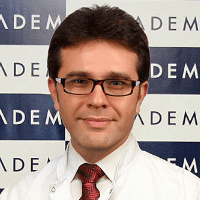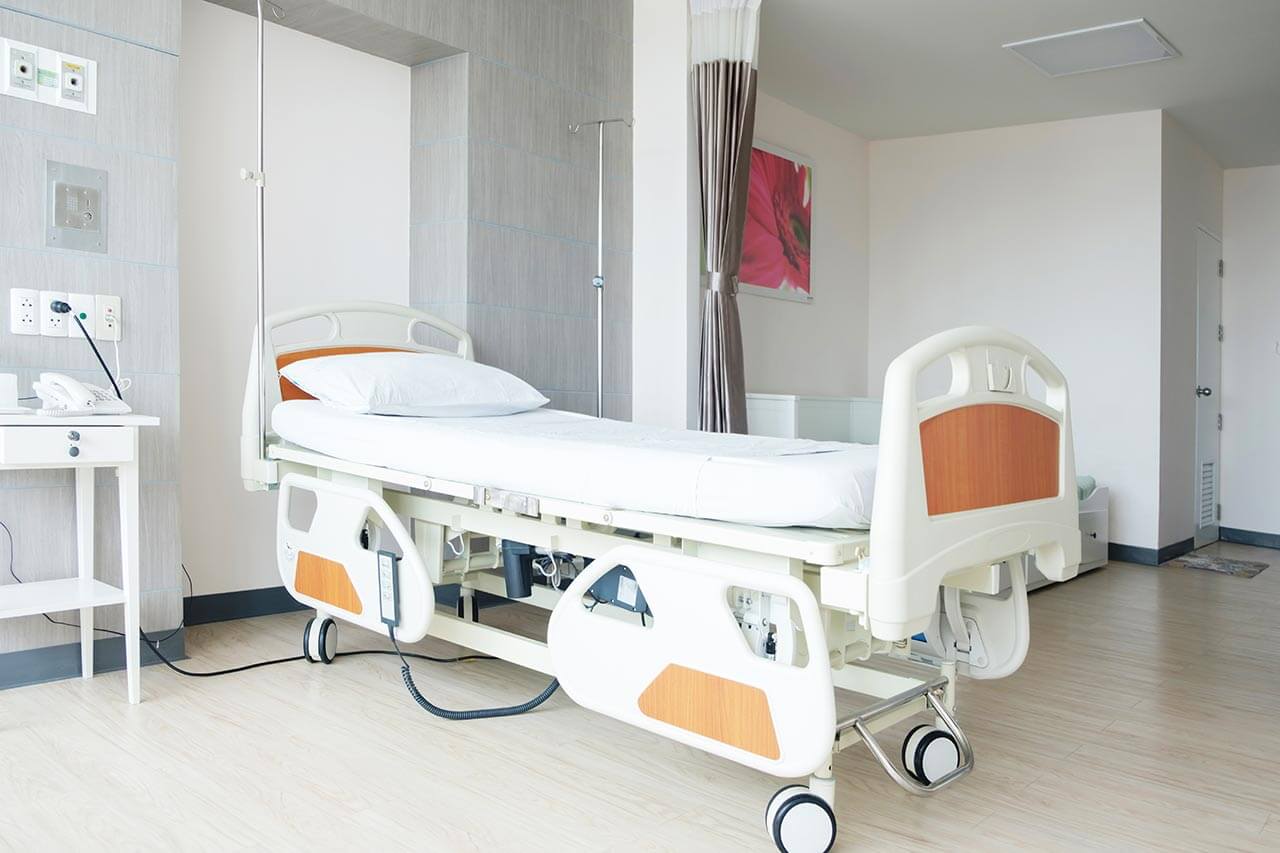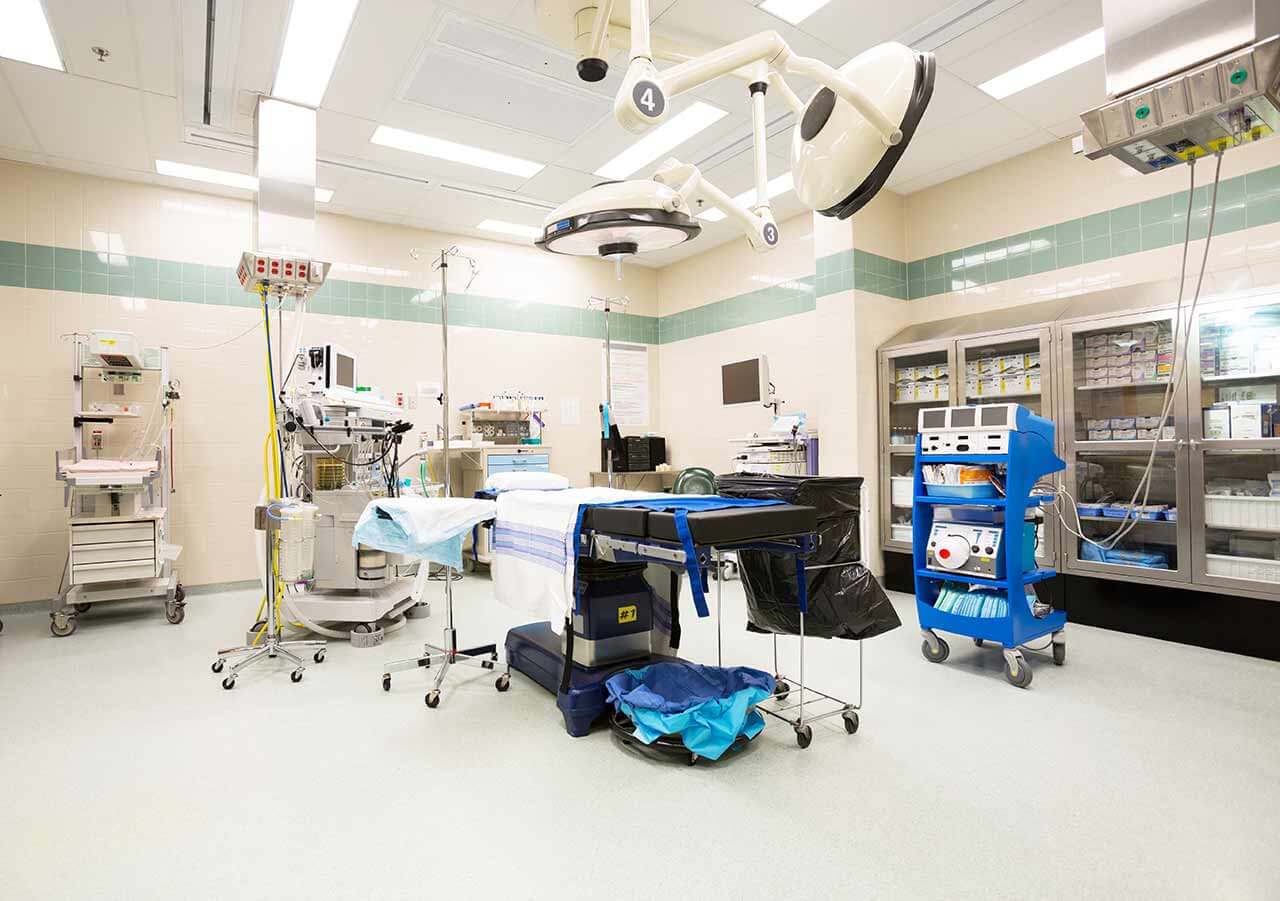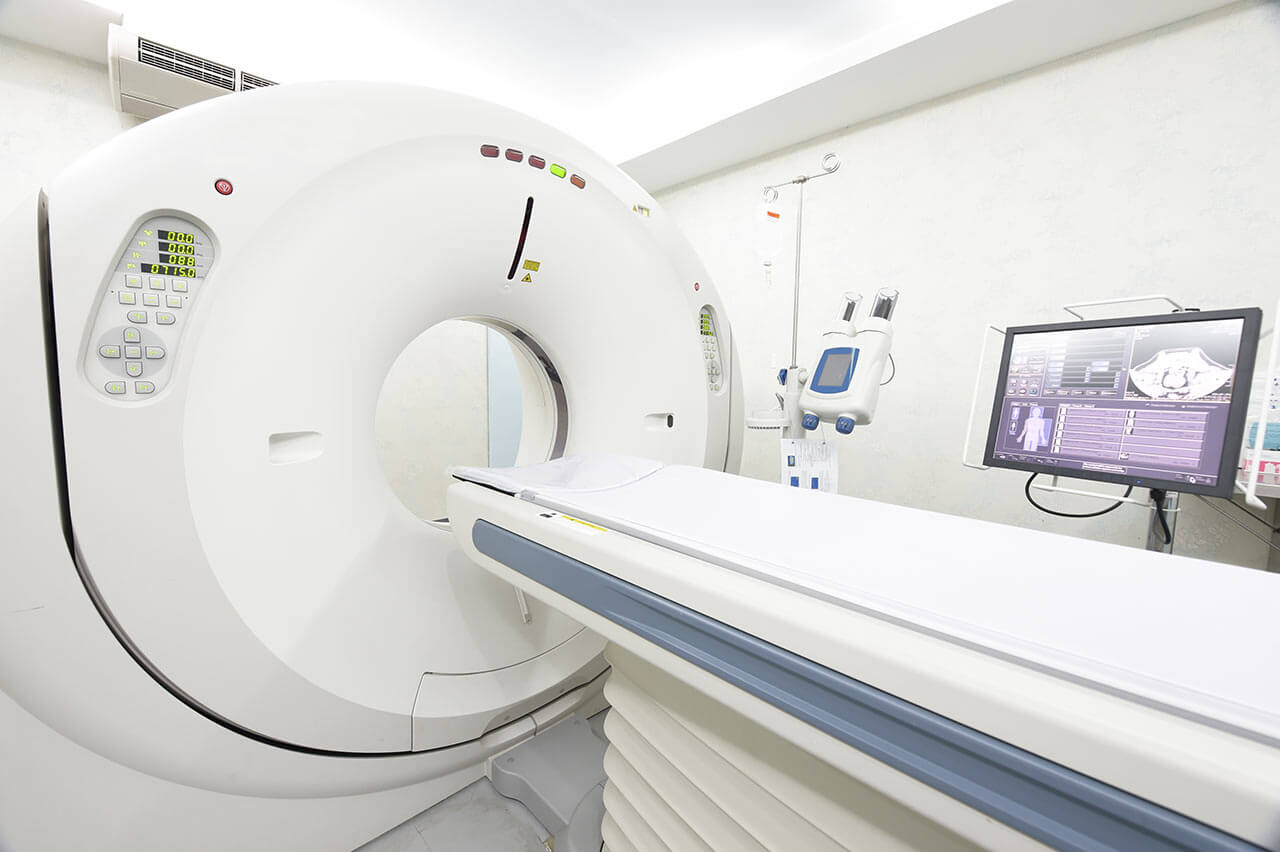
The program includes:
- Initial presentation in the clinic
- clinical history taking
- review of medical records
- physical examination
- laboratory tests:
- complete blood count
- general urine analysis
- biochemical analysis of blood
- inflammation indicators (CRP, ESR)
- TSH, fT3, fT4
- indicators of blood coagulation
- neurological examination
- CT/MRI scan
- neuropsychological tests (if indicated):
- ENMG (electroneuromyography)
- EEG (electroencephalography)
- SEPs (somatosensory evoked potentials)
- VEPs (visually evoked potentials)
- BAEP tests (brainstem auditory evoked potentials)
- stationary EEG monitoring
- preoperative care
- surgical treatment of epilepsy with deep brain stimulation and installation of
neurostimulator (including the cost of neurostimulator) - 1-day intensive care unit stay
- postoperative MRI control
- symptomatic treatment
- control examinations
- the cost of essential medicines and materials
- nursing services
- full hospital accommodation
- developing of further guidance
How program is carried out
During the first visit, the physician will conduct a clinical examination and neurological examination, and go through the results of the available diagnostic tests. After that, you will undergo the necessary additional examination, such as the laboratory blood and urine tests, MRI or CT scan. Based on the results of an additional examination, the physician will clarify the localization of epileptogenic foci in the brain. After that, the preparation according to the preoperative standard will begin.
The first stage of treatment is the implantation of stimulating electrodes into the brain. The operation is performed under local anesthesia, through a small opening in the skull. You will be awake and communicating with your surgeon, so that he will be able to assess the correctness of the brain electrodes placement.
The second stage of treatment is the implantation of a neurostimulator, which will generate electrical impulses that regulate the work of the brain. Depending on the anatomical peculiarities, the surgeon will place the neurostimulator under the collarbone or in the abdomen and attach the brain electrodes to it. Typically, this operation is performed under general anesthesia.
After the completion of the operation, you will stay in the intensive care unit, under the round-the-clock supervision of physicians and nurses. When the condition becomes stable, you will be transferred to a regular ward.
Your physician will evaluate the results of the postoperative MRI and program the neurostimulator according to your individual needs. You will be able to turn the device on and off yourself. After setting up the neurostimulator, the attending physician will schedule the date of discharge from the hospital and give you detailed recommendations for further follow-up and treatment.
Required documents
- Medical records
- EEG (if available)
- MRI/CT scan (if available)
Service
You may also book:
 BookingHealth Price from:
BookingHealth Price from:
About the department
The Department of Adult and Pediatric Neurology, Neurosurgery at the Acibadem Healthcare Group provides the comprehensive diagnostics, conservative and surgical treatment of the full range of diseases of the nervous diseases. The department's doctors have vast experience in the treatment of particularly complex clinical cases in neurology. The department is headed by Prof. Dr. med. Koray Özduman.
The department deals with the treatment of patients of all age groups. The clinical practice is based on a multidisciplinary approach and the use of the very latest therapeutic techniques. The department is considered one of the leading Neurosurgery Centers worldwide. The department's specialists perform many successful operations to treat meningiomas, chordomas, schwannomas, aneurysms, arteriovenous and cavernous malformations.
The department's neurosurgeons use the very latest technologies for the treatment of adults and children with neurological and neurosurgical diseases. These include 3 Tesla MRI, which facilitates the total removal of the tumor, reduces the frequency of follow-up interventions and minimizes side effects caused by the operation. In addition, the department has innovative Gamma Knife Perfexion (Gamma Knife) system, which is used for the treatment of brain tumors. This system has a number of advantages, such as the higher accuracy and efficiency, minimal damage to the healthy brain tissues, no need for rehabilitation measures, no incisions on the head. The patient can return home already on the day of treatment.
The department's competence includes the diagnostics and treatment of the following diseases:
- Brain diseases in adults
- Benign and malignant brain neoplasms
- Skull base tumors
- Neurovascular diseases
- Intracerebral hemorrhage (hemorrhagic stroke)
- Cerebral thrombosis (ischemic stroke)
- Brain aneurysms
- Arteriovenous malformations
- Cavernous malformations
- Hydrocephalus
- Traumatic brain injuries
- Congenital malformations
- Infectious brain lesions
- Movement disorders
- Pain syndromes
- Spinal diseases in adults
- Spinal disc herniation (cervical, thoracic and lumbar spine)
- Degenerative and age-related spinal changes
- Spinal and spinal cord tumors
- Spinal arteriovenous malformations
- Spinal injuries
- Infectious spinal lesions
- Peripheral nerve diseases in adults
- Compression syndromes
- Traumatic injuries
- Neurological and neurosurgical diseases in children
- Congenital brain malformations
- Hydrocephalus
- Craniosynostosis
- Arachnoid cysts
- Craniovertebral junction anomalies
- Spinal dysraphism
- Epilepsy
- Spasticity
- Cerebral palsy
- Other diseases in adults and children
Curriculum vitae
Education and Qualifications
- 1992 - 1998 Faculty of Medicine, Istanbul University, Turkey.
- 1999 - 2005 Residency, Faculty of Medicine, Marmara University, Department of Neurosurgery.
- 2002 - 2003 Clinical Research Fellow, Yale University, Department of Neurosurgery.
- 2005 - 2007 Scientific Internship, Yale University, Department of Neurosurgery.
Medical Licenses
- 1998 Turkish License for Clinical Practice, Istanbul.
- 2002 ECFMG (Educational Commission for Foreign Medical Graduates) Certificate.
Clinical and Scientific Career
- 1992 Member of the Student Research Group (Blood Brain Barrier) at the Istanbul University.
- 1995 L.J. Saphiro Scholarship of the University of Rochester, New York, Member of the Summer Program of the Strong Children's Research Center.
- 1996 Research Program of the University of Rochester (Comprehensive Epilepsy Program – Basic Research Laboratory; Electrical and Chemical Kindling Research; Signal Function of Nerve Growth Factor).
- 1997 Summer Optional Program on Neurosurgery of the Faculty of Medicine, Yale University.
- 1999 Two-week Summer Optional Program at the Boyer Institute for Molecular Medicine at Yale University.
- 2000 Clinical Research Fellow, Department of Neurosurgery, Matsumoto University, Japan.
- 2002 - 2003 Clinical Fellow in the Department of Neurosurgery at Yale University, First Resident who took part in "Yale-Turkey neurosurgical traveling fellowship program".
- 2005 Completion of Residency in Neurosurgery and Medical License for Neurosurgical Practice in Turkey.
- 2005 - 2007 Research Fellow in Neuro-Oncology at Yale University.
- 2007 - 2008 Military Service in the Turkish Army with the Rank of Second Lieutenant; Chief Neurosurgeon at the Gümüşsuyu Military Hospital, Istanbul, Turkey.
- Since 2008 Work in the Department of Adult and Pediatric Neurology, Neurosurgery at the Acibadem Healthcare Group Istanbul.
- 2009 - 2016 Assistant Professor, Faculty of Medicine, Acibadem University (Neurosurgery).
- 2016 Professor of Neurosurgery, Faculty of Medicine, Acibadem University.
Continuing Education
- 1999 Johns Hopkins University, Department of Neurology and Neurosurgery, Emergency Course in Neurology and Neurosurgery.
- 1999 Florence Nightingale Hospital, Istanbul.
- 1999 Head Injury Training Course, Turkish Neurosurgical Society.
- 2001 European Association of Neurosurgical Societies, "Methodological Course of Researches and Publications", Ankara, Turkey.
- 2001 Course on the surgical treatment of orbital pathologies, Marmara University, Institute of Neurological Sciences, Istanbul.
- 2001 Training Course on Oncopathology, Turkish Neurosurgical Society, Turkey.
- 2002 RUNN Course (Research Update in Neuroscience for Neurosurgeons), USA.
- Training Course in Cerebrovascular Surgery, Turkish Neurosurgical Society, Turkey.
- 2003 Training Course, Marmara University, Institute of Neurological Sciences, Istanbul.
- 2006 Scientific Research Conference: "Models and Mechanisms of Cancer Development", Bryant University, Smithfield, USA.
- 2007 Lecture Course in Virology, Department of Genetics, Yale University, USA.
- 2008 6th Roche School on Clinical Researches, Ankara, Turkey.
- 2013 Scientific Research Conference: "Cancer Genetics and Epigenetics", Italy.
- 2016 LXXXI Cold Spring Harbor Symposium on Quantitative Biology (Focus on Cancer), USA.
- 2016 Gamma-Knife Icon advanced training courses, Department of Neurosurgery, University of Pittsburgh, USA.
- 2017 Updated Gamma-Knife Icon Course, Department of Neurosurgery, Cleveland Clinic.
- 2018 Cold Spring Harbor Symposium on Quantitative Biology (Development Mechanisms and Cancer Models), USA.
Prizes
- 1995 University of Rochester, Department of Pediatrics, L.J. Saphiro Research Scholarship.
- 2004 Turkish Scientific and Technical Research Council, Prize of the Brain Research Society (TUBITAK-BAD).
- 2006 Anna-Fuller Scholarship in Molecular Neuro-Oncology.
- 2009 Hamit Ziya Gökalp Prize of the Turkish Neurosurgical Society (Young Researcher First Prize).
- 2011 Honorary Prize of the Mahir Tevruz for Scientific Researches of the Turkish Neurosurgical Society.
- 2015 Best Thesis Report Award, Nervous Tumor Section, American Association of Neurological Surgeons.
- 2018 Prize of the American Association of Neurological Surgeons.
Memberships in Professional Societies
- American Association of Neurological Surgeons.
- Section on the Central Nervous System Tumors of the American Association of Neurological Surgeons.
- Society for Neuro-Oncology.
- European Association of Neuro-Oncology.
- American Association for Cancer Research.
- International Meningioma Society.
- Turkish Neurosurgical Society.
- Tumor Working Group of the Turkish Neurosurgical Society (TURNOG).
- Turkish Neurological Society.
Photo of the doctor: (c) Acibadem Healthcare Group Istanbul
About hospital
The Acibadem Healthcare Group was founded in 1991 and in a short time has become one of the leading medical facilities not only in Turkey, but throughout the world. The medical group has developed rapidly for many year. Today, it consists of 22 hospitals and 19 outpatient clinics in 5 countries (in Turkey, Bulgaria, Holland, Macedonia and Northern Iraq). Using the most modern technologies and the very latest treatment methods, the team of highly qualified specialists provides medical care, which meets all international quality standards. The medical team of the Healthcare Group consists of 3,500 doctors and 4,000 nurses.
It is worth noting that the hospitals of this group offer high-quality medical services of their in-house laboratories (Acibadem Labmed). The laboratories provide the widest range of tests, including genetic and histological ones. It also includes the Stem Cell Bank and Cord Blood Bank. The Acibadem Mobile Health provides mobile medical services, the APlus service company is engaged in cleaning and catering in hospitals and large companies, and the Acibadem Project Management is engaged in the design of the hospitals.
The Acibadem Healthcare Group has been accredited by the Joint Commission International (JCI), while the Acibadem Labmed Laboratory has received "ISO 15189 Medical Laboratory Accreditation".
Moreover, the Acibadem holding has its own university, which is engaged in research activities in the field of medicine and professional training of doctors.
With such rich resources and advanced infrastructure, the Acibadem Healthcare Group provides high-quality medical services, which are not inferior to medical care in prestigious European and American Medical Centers.
Photo: (c) depositphotos
Accommodation in hospital
Patients rooms
The patients of the Acibadem Healthcare Group live in comfortable and spacious rooms made in a modern design. The standard room includes an automatically adjustable bed, a bedside table, a wardrobe for clothes, a table and chairs for receiving visitors and a TV. Each room has an ensuite bathroom with shower and toilet.
Meals and Menus
The patients of the hospital are offered tasty and healthy three meals a day: buffet breakfast, lunch and dinner. If necessary, you will be offered an individual menu.
Further details
Standard rooms include:
Hotel
During the outpatient program, you can stay at the hotel of your choice. Our managers will help you choose the most suitable option.





